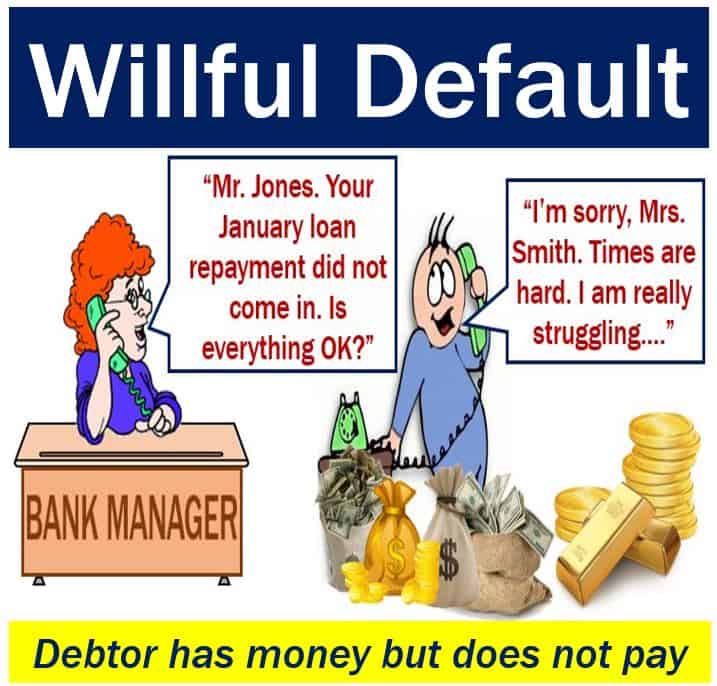Willful default, sometimes referred to as willful misconduct, occurs when a party in a contract, agreement, or any obligation fails to do what they were supposed to or ordered to do. The person who was under obligation to do something – the obligor – intentionally failed when there is willful default.
The word default means failure to meet or fulfil an obligation.
Willful default is more than carelessness or negligence. If you are careless or negligent, you may not have failed deliberately. The word ‘willful’ means that the person failed on purpose – it was their will. When they did whatever it was in breach of the agreement or obligation, they knew it was wrong, but went ahead regardless.
Spelling: in the United States, people write ‘Wilful’ (with just one ‘L’). The preferred spelling in most other native-English-speaking countries is ‘Willful’ (double ‘L’). In Canada, both spellings are common.

Willful default – trusts and loans
The term is commonly used in trusts and loans. If you borrow money from the bank, and then start defaulting through no fault of your own – perhaps you lost your job – you are just defaulting.
However, if you start missing repayments deliberately, even though you have enough money to meet those payments, this is a deliberate act; you are failing in your obligation as a borrower because you want to – you are guilty of willful default.
Someone in charge of a trust, who deliberately uses its money for non-trust things, could also be guilty of willful default, especially if the evidence is clear that they knew that what they were doing was wrong.
British courts willful default or willful misconduct must include evidence of at least one of the following:
1. A deliberate intention to do something which the actor knows is wrong.
2. A reckless act in the sense that the person who does it is aware that the act may result in loss, and yet doesn’t care whether or not loss will result.
What is a willful defaulter?
When talking about funds, for example in a trust or from a loan, a willful defaulter is a person who has essentially not used the money for its intended person, or repayments in a loan were not made when the individual had the money to do so.
The person who is guilty of willful default is a willful defaulter.
After the Deepwater Horizon oil spill in the Gulf of Mexico, US Federal Judge Barbier wrote in his ruling that the discharge of oil was the result of gross negligence or willful misconduct (willful failure) by British multinational oil giant BP.
